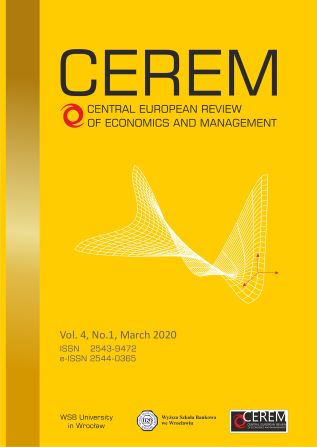Islands in the energy stream: regional cooperation in the Indian Ocean tourism sector
DOI:
https://doi.org/10.29015/cerem.831Abstract
Aim: This article considers the need to move away from a dependency on fossil fuels towards more sustainable renewable sources of energy production. The focus is on the tourism sector in two Indian Ocean destinations, Mauritius and the Seychelles. The broader aim, however, is to highlight the interconnectedness between public and private stakeholders and how lessons learned from these case studies could have broader applicability elsewhere.
Design/research methods: A case study approach has been taken drawing on data supplied by both the private tourism sector in the destinations under consideration and relevant government and regional reports.
Conclusions/findings: Progress has been made in the shift towards decarbonisation policies and practices in these destinations. This has been achieved via a cooperative approach between public and private stakeholders, extending the development of renewable energy infrastructure and supply to include sustainable education policies supported by both governments’ education departments and vocational programmes implemented by the larger hotels in these destinations.
Originality/value of the article: Although there have been other studies conducted on the promotion of renewable energy in small island states, there is a paucity of such research looking specifically at the tourism sector and the role of public/private partnerships in developing broader education for sustainable development programmes.
Implications: The case studies focus on highlighting how governments and tourism businesses can work towards shared goals, in this case decarbonisation and education for sustainability. The implication is that such a model could be applied elsewhere with equally positive results.
References
Central Intelligence Agency, 2018, CIA World Factbook 2018-2019, Skyhorse Publishing, Washington DC
Climate Analytics, 2018, 1.5°C temperature limit - key facts. Assessed 8.10.18 https://climateanalytics.org/briefings/1-5c-key-facts/
Gnana, J, 2018, ‘Abu Dhabi fund allocates $17 million to Seychelles renewable projects’, The National, 12th March, 2018
Haas, E.B., 1968, The Uniting of Europe: Political, Social and Economic Forces 1950–1957, Stanford: Stanford University Press
Intergovernmental Panel on Climate Change, Global Warming of 1.5 degrees, Special Report, IPCC, Geneva
International Energy Agency et al, 2018, Tracking SDG7: The Energy Progress Report, 2018, World Bank, Washington DC
IPCC, 2018, Global Warming of 1.5°C, an IPCC Special Report on the Impacts of Global Warming of 1.5°C above Pre-industrial Levels and Related Global Greenhouse Gas Emission Pathways, in the Context of Strengthening the Global Response to the Threat of Climate Change, Sustainable Development, and Efforts to Eradicate Poverty. Available at; http://www.ipcc.ch/report/sr15/
Lenzen, M. et al, 2018, ‘The Carbon Footprint of Global Tourism’, Nature Climate Change, Number 8, pp 522-528.
Ministry of Tourism, Maldives, 2014, Tourism Yearbook 2014. Malé: Republic of Maldives Ministry of Tourism
Ministry of Tourism, Seychelles 2017, Seychelles explores energy efficiency in the tourism sector with the help of experts from the Dutch Caribbean island of Aruba, Accessed 23.9.18
Mundi Index, 2018, Mauritius - International tourism, International tourism, number of arrivals Accessed 8.8.18 https://www.indexmundi.com/facts/mauritius/international-tourism
National Bureau of Statistics (NBS), 2018, Seychelles Visitor Arrivals, 2017 Accessed 8.8.18
UNWTO. 2012a, Challenges and Opportunities for Tourism Development in Small Island Developing State, Madrid: UNWTO, https://www.nbs.gov.sc/statistics/tourism
Republic of Seychelles, Seychelles Energy Commission, 2011, Seychelles Energy Report for 2010 accessed , 20.09.18
http://www.sec.sc/images/archives/energy-report/Seychelles-Energy-Report-for-2010-28A.pdf
Republic of Seychelles, Seychelles Energy Policy, 2018, Energy Policy for the Republic of Seychelles 2010-2030, accessed 20.9.18: http://www.iea.org/policiesandmeasures/pams/seychelles/name-37155-en.php
Republic of Seychelles, 2015, Intended Nationally Determined Contribution (INDC) Under the United Nations Framework Convention on Climate Change, Government of Seychelles
Seychelles News Agency, 2016, ‘Seychelles see signing of Paris Agreement as environmental turning point’, accessed 14.10.18 http://www.seychellesnewsagency.com/articles/5056/Seychelles+sees+signing+of+Paris+Agreement+as+environmental+turning+point
World Bank SDG, 2018, https://www.worldbank.org/en/news/press-release/2018/05/02/sustainable-development-goal-sdg-7-global-progress-report
UNWTO, 2007, Climate Change and Tourism – Responding to Global Challenges
UNWTO, 2017, Tourism Highlights 2017, UNWTO, Madrid
United Nations Environment Programme and World Tourism Organization, 2012b, Tourism in the Green Economy – Background Report, UNWTO, Madrid.
World Bank, 2018a, Progress on World Energy Goals Slow, but Strong Gains in Countries Show Promise, World Bank, Washington DC https://www.worlddata.info/africa/mauritius/energy-consumption.php 23.9.14 accessed 23.4.19
World Bank, 2018b, Progress on World Energy Goals Slow, but Strong Gains in Countries Show Promise, World Bank, Washington DC https://www.worlddata.info/africa/seychelles/energy-consumption.php accessed 23.4.19
World Tourism Organization, 2018, Tourism for Development – Volume I: Key Areas for Action, UNWTO, Madrid, DOI: https://doi.org/10.18111/9789284419722.
UNWTO, UNEP, WMO, 2008, Climate Change and Tourism: Responding to Global Challenges, United Nations World Tourism Organization (UNWTO), United Nations Environment Programme (UNEP) and World Meteorological Organization (WMO), UNWTO: Madrid, Spain.
Downloads
Published
Issue
Section
License
The aim of CEREM is to make scientific work available in accordance with the principle of open access. The rules mentioned below are important, as they enable CEREM and its publisher, the WSB Merito University in Wroclaw, to distribute the scientific work to a wide public while complying with specific legal requirements, at the same time protecting the rights of the authors.
The author transfers to the WSB Merito University in Wroclaw, free of charge and without territorial limitations, with all proprietary copyrights to the said piece of work in the understanding of the act of 4th February 1994 on copyrights and derivative rights (Journal of Laws of 1994, no. 24, item 83, as amended) on an exclusivity basis, i.e. the rights to:
1. Make the piece of work in question available via the Digital Library established by the WSB Merito University in Wroclaw.
2. Produce, record and reproduce in multiple copies the piece of work using any techniques whatsoever, including printing, reprography, magnetic recording and digital processing, and particularly its reproduction by recording on CDs and similar data carriers,
3. Use fragments of the piece of work for promotional purposes in publications, promotional materials, the Internet and Intranet type networks managed by the WSB Merito University in Wroclaw.
4. Store the piece of work into computer databases managed by the WSB Merito University in Wroclaw.
5. Copy and reproduce the piece of work using photo-mechanic technologies other than those commonly known at the time of the signature hereof (photocopies, Xerox copies etc.),
6. Process the piece of work, transferring it into an electronic form, and distribute it on the Internet without limitations.


